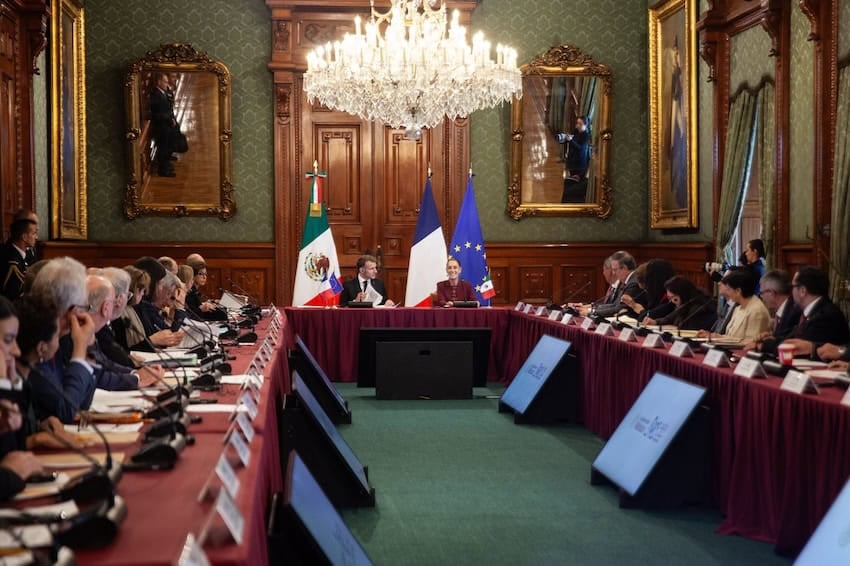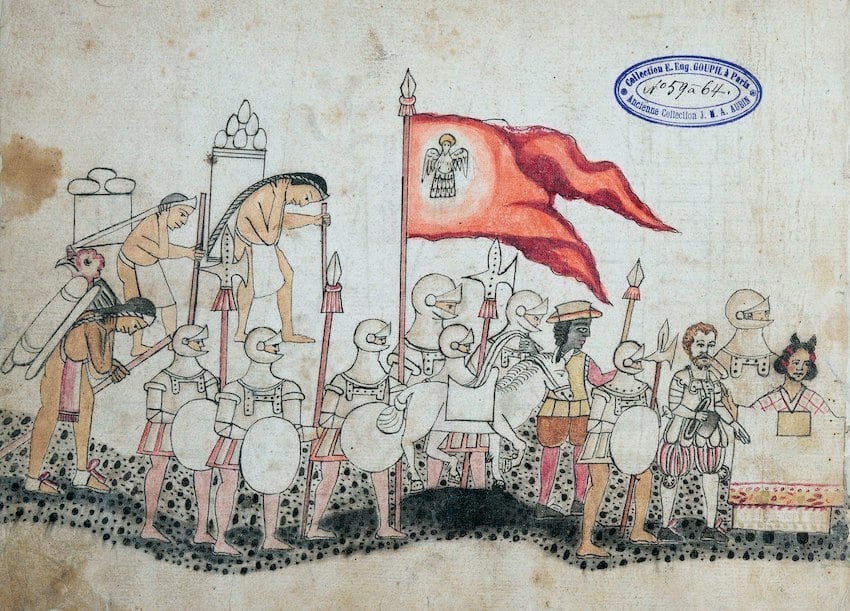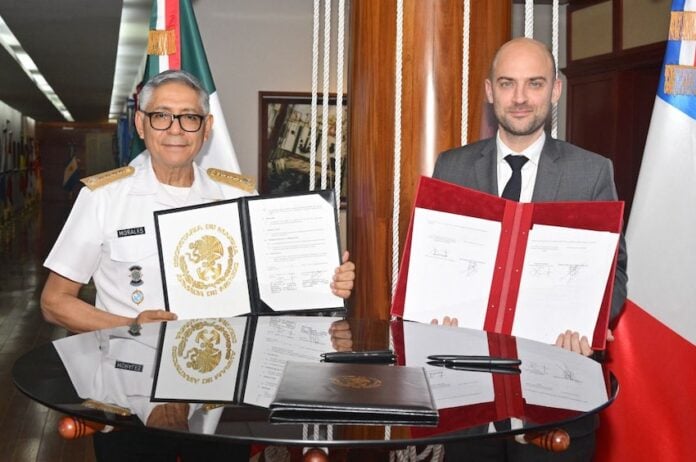Navy Minister Admiral Raymundo Pedro Morales Ángeles announced Friday an alliance between Mexico and France to confront transnational criminal organizations.
The announcement came during French President Emanuel Macron’s visit with President Claudia Sheinbaum in Mexico City.

Morales and French Foreign Minister Jean-Noël Barrot signed a letter of intent with the aim of strengthening cooperation and joint capabilities in maritime security. Roland Lescure, France’s Economy Minister, also signed the document.
During a press conference alongside Sheinbaum in the National Palace, Macron said the fight against drug traffickers “unites all of us.”
“We are preparing greater cooperation on customs and security matters … but the sovereignty of each country must be absolutely respected,” he said.
Barrot said France will mobilize its diplomatic network in Latin America against drug trafficking, tripling its intervention resources while also increasing the number of specialized personnel in its embassies by 20%.
As France faces an increase in cocaine trafficking and consumption, Barrot said he was getting his ministry “in battle shape to fully assume its role in the fight against drugs.”
Insisting that cooperation between its embassies and drug-producing countries “yields results,” Barrot told the magazine Journal du dimanche that his ministry will create a regional academy for combating organized crime.
The academy — which will be based in the Dominican Republic — “will train 250 investigators, magistrates, customs agents and financial analysts from the security and justice forces of allied countries each year,” Barrot said.
“Latin American countries are at the forefront of the fight against this scourge and against the criminal groups that have turned it into a global industry,” he said. “That is why we want to strengthen our alliances with these countries.”
The two countries also forged cultural agreements
In addition to the anti-drug trafficking accord, Mexico and France finalized agreements concerning cooperation in science, culture and diplomacy.
The allies agreed to the temporary reciprocal exchange of the Azcatitlan and Boturini Codices as part of a cultural exhibition to be held in both countries next year, the 200th anniversary of diplomatic relations between Mexico and France.

“This reaffirms … that there is no future of shared prosperity without acknowledging history,” Sheinbaum said. “Every codex, every stroke, every symbol reminds us that we are heirs to civilizations that flourished long before Western modernity.”
The Azcatitlan Codex — held in the Bibliothèque nationale de France since 1898 — is an Aztec manuscript detailing the history of the Mexica (Aztecs) and their migration journey from Aztlán up to the Spanish Conquest. It is thought to have been produced in the first 100 years or so after the Conquest.
The Boturini Codex — held in Mexico’s National Anthropology Museum — details the origin of the Mexica and is thought to have been produced around the time of the Spanish Conquest.
With reports from El Financiero, La Jornada and El Economista
